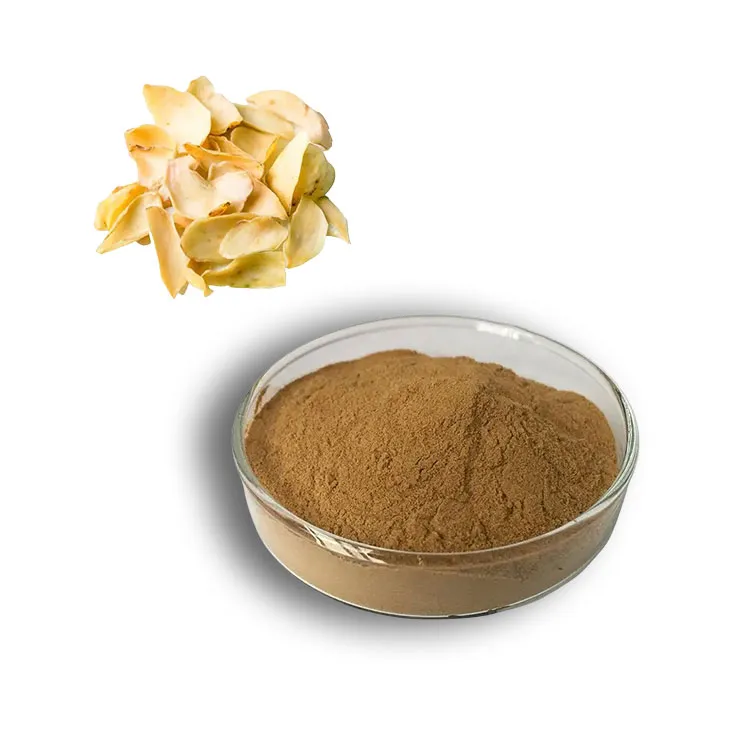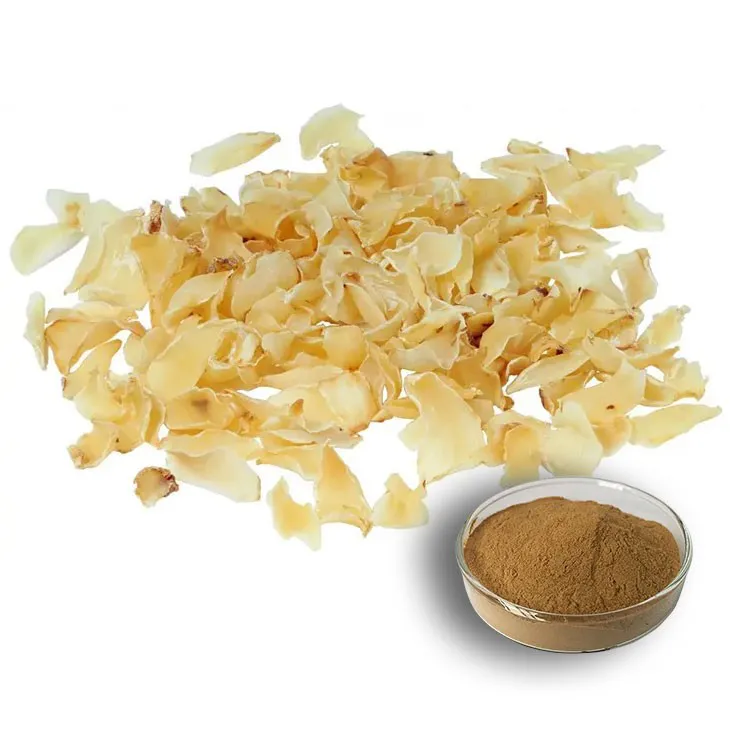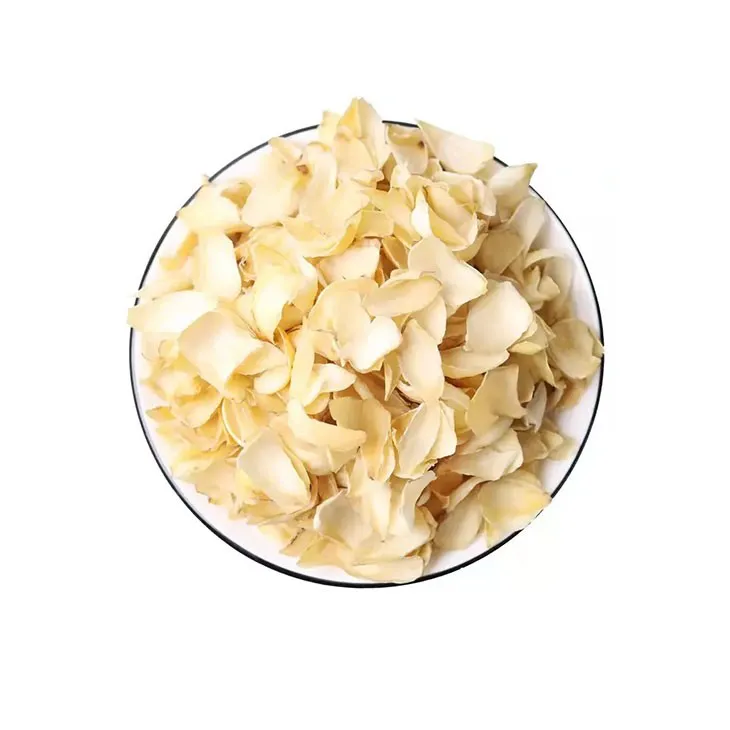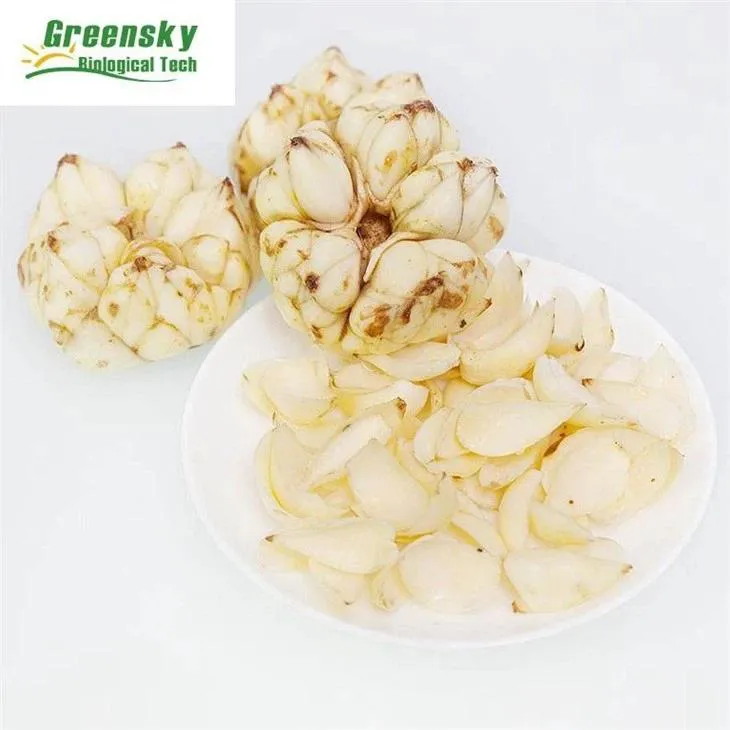- 0086-571-85302990
- sales@greenskybio.com
Benefits of Lily Extract: An Impressive Extract on the Kitchen Table.
2024-11-13

1. Introduction to Lily extract
Lily extract has been steadily gaining recognition as a valuable addition to the kitchen table. Derived from the lily plant, this extract is a rich source of various nutrients and bioactive compounds. The lily has a long history of use in different cultures, both for its ornamental value and its potential health - promoting properties. In recent years, scientific research has delved deeper into the composition and benefits of Lily extract, revealing its multifaceted potential.

2. Nutritional Composition of Lily Extract
Lily extract contains a wide array of nutrients. It is a good source of vitamins, such as vitamin C, which is essential for a healthy immune system, collagen synthesis, and antioxidant protection. Vitamin B complex components are also present, playing crucial roles in energy metabolism, nerve function, and the maintenance of healthy skin, hair, and nails.
Moreover, it contains minerals like potassium, which is important for heart health and proper muscle function. The presence of these nutrients in lily extract contributes to its overall value as a beneficial addition to the diet.

3. Antioxidant Properties of Lily Extract
One of the most significant benefits of lily extract is its antioxidant properties. Antioxidants play a crucial role in maintaining the body's health by neutralizing free radicals. Free radicals are unstable molecules that are formed during normal metabolic processes as well as due to exposure to environmental factors such as pollution, radiation, and certain chemicals.
When free radicals accumulate in the body, they can cause oxidative stress. Oxidative stress has been linked to a variety of chronic diseases, including heart disease, cancer, and neurodegenerative disorders. By scavenging free radicals, lily extract helps to reduce oxidative stress and potentially lower the risk of these diseases.
Studies have shown that the bioactive compounds in lily extract, such as flavonoids and phenolic acids, are responsible for its antioxidant activity. These compounds can donate electrons to free radicals, thereby stabilizing them and preventing them from causing damage to cells and tissues.

4. Anti - Inflammatory Effects of Lily Extract
Lily extract also exhibits anti - inflammatory effects. Inflammation is a natural response of the body's immune system to injury or infection. However, chronic inflammation can be detrimental and is associated with many health problems, such as arthritis, inflammatory bowel disease, and certain skin disorders.
The anti - inflammatory properties of lily extract may be due to its ability to modulate the body's immune response. It can inhibit the production of pro - inflammatory cytokines, which are signaling molecules that promote inflammation. By reducing inflammation, lily extract can help to soothe various inflammatory conditions and improve overall health.
For example, in some in - vitro and animal studies, lily extract has been shown to reduce inflammation in cells and tissues, suggesting its potential as a natural anti - inflammatory agent.

5. Culinary Uses and Benefits in the Kitchen
In the culinary world, lily extract offers several advantages.
5.1 Flavor Enhancement
Lily extract can add a unique and delicate flavor to dishes. It has a subtly sweet and floral note that can enhance the taste of both sweet and savory recipes. For sweet dishes, it can be added to desserts such as cakes, puddings, and ice creams, imparting a distinct and elegant flavor. In savory dishes, it can be used in sauces, marinades, and soups, adding a touch of complexity to the overall flavor profile.
5.2 Nutritional Value Boost
As mentioned earlier, lily extract is rich in nutrients. When added to dishes, it can increase the nutritional value of the meal. This is especially beneficial for health - conscious cooks who are looking for ways to make their recipes more nutritious without sacrificing taste. For example, adding lily extract to a vegetable stir - fry not only enhances the flavor but also adds a dose of vitamins, minerals, and antioxidants.
5.3 Versatility in Cooking
Lily extract is highly versatile in the kitchen. It can be used in a variety of cooking methods, including baking, frying, and boiling. It can also be combined with other ingredients easily, making it a convenient addition to any recipe. Whether it's a simple home - cooked meal or a gourmet dish, lily extract can find its place on the kitchen table.
6. Incorporating Lily Extract into Your Diet
There are several ways to incorporate lily extract into your diet.
- Direct Consumption: Some lily extract products are available in a form that can be consumed directly, such as tinctures or concentrated extracts. However, it is important to follow the recommended dosage instructions to ensure safety.
- Adding to Beverages: Lily extract can be added to various beverages. For a refreshing and healthy drink, it can be added to water, tea, or fruit juices. This is a simple and convenient way to enjoy the benefits of lily extract.
- Using in Cooking: As discussed earlier, lily extract can be used in cooking. Start by adding a small amount to your recipes and adjust the quantity according to your taste preferences. Experiment with different dishes to discover new and exciting flavor combinations.
7. Precautions and Considerations
While lily extract offers many potential benefits, there are also some precautions to keep in mind.
- Allergies: Some people may be allergic to lily plants. If you have a known allergy to lilies, it is best to avoid using lily extract.
- Pregnancy and Breastfeeding: There is limited research on the safety of lily extract during pregnancy and breastfeeding. It is advisable to consult a healthcare provider before using lily extract if you are pregnant or breastfeeding.
- Drug Interactions: Lily extract may interact with certain medications. If you are taking any medications, especially those that affect the immune system or blood clotting, it is important to consult a doctor before using lily extract.
8. Conclusion
Lily extract is a remarkable substance that offers a wide range of benefits. From its antioxidant and anti - inflammatory properties to its culinary uses, it has the potential to enhance both health and the dining experience. However, it is important to use it with caution, taking into account any potential allergies, pregnancy or breastfeeding status, and possible drug interactions. As more research is conducted on lily extract, its full potential may be further uncovered, making it an even more valuable addition to the kitchen table in the future.
FAQ:
What are the main nutrients in lily extract?
Lily extract is rich in a variety of nutrients, such as vitamins (including vitamin C, etc.), minerals (like potassium, magnesium), and some unique bioactive compounds. However, the specific composition may vary depending on the type of lily and the extraction method.
How does lily extract combat free radicals?
The antioxidant properties in lily extract are mainly due to the presence of certain bioactive compounds. These compounds can neutralize free radicals by donating electrons, thereby preventing free radicals from causing oxidative damage to cells and tissues in the body.
Can lily extract be used in all types of dishes?
Lily extract can be used in a wide variety of dishes. It can be added to soups, stews, salads, and even some baked goods. However, its flavor profile may not be suitable for every single type of cuisine, and it's important to consider the overall flavor balance of the dish when using it.
How significant are the anti - inflammatory effects of lily extract?
The anti - inflammatory effects of lily extract are still being studied. While there is evidence to suggest that it may soothe certain inflammatory conditions, more research is needed to fully understand the extent and mechanisms of these effects. It is not a substitute for medical treatment for serious inflammatory diseases but may be a complementary addition to a healthy lifestyle.
Is lily extract safe for everyone to consume?
Generally, lily extract is safe for most people when consumed in moderation. However, some individuals may be allergic to lilies, and in such cases, lily extract should be avoided. Also, pregnant or breastfeeding women should consult a healthcare provider before consuming products containing lily extract.
Related literature
- The Nutritional and Medicinal Properties of Lily Extracts"
- "Antioxidant and Anti - Inflammatory Activities of Lily - Based Compounds in Food"
- "Lily Extract: A Promising Ingredient for Culinary and Health Applications"
- ▶ Hesperidin
- ▶ Citrus Bioflavonoids
- ▶ Plant Extract
- ▶ lycopene
- ▶ Diosmin
- ▶ Grape seed extract
- ▶ Sea buckthorn Juice Powder
- ▶ Fruit Juice Powder
- ▶ Hops Extract
- ▶ Artichoke Extract
- ▶ Mushroom extract
- ▶ Astaxanthin
- ▶ Green Tea Extract
- ▶ Curcumin
- ▶ Horse Chestnut Extract
- ▶ Other Product
- ▶ Boswellia Serrata Extract
- ▶ Resveratrol
- ▶ Marigold Extract
- ▶ Grape Leaf Extract
- ▶ New Product
- ▶ Aminolevulinic acid
- ▶ Cranberry Extract
- ▶ Red Yeast Rice
- ▶ Red Wine Extract
-
Baicalin
2024-11-13
-
American Ginseng Root Extract
2024-11-13
-
Natural grape seed extract
2024-11-13
-
Tormentil Extract
2024-11-13
-
Tongkat Ali Extract
2024-11-13
-
Coconut Water Powder
2024-11-13
-
Curcuma Longa Extract/Turmeric extract
2024-11-13
-
Hericium erinaceus extract powder
2024-11-13
-
Eucommia Ulmoides Extract
2024-11-13
-
Camu Camu Extract
2024-11-13





















